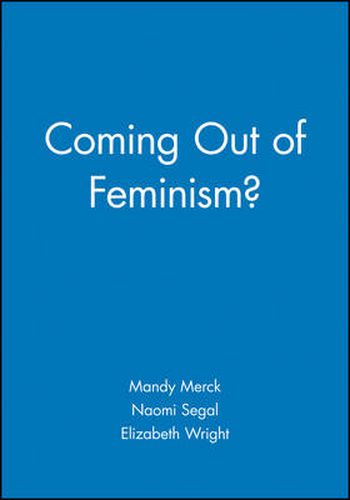Readings Newsletter
Become a Readings Member to make your shopping experience even easier.
Sign in or sign up for free!
You’re not far away from qualifying for FREE standard shipping within Australia
You’ve qualified for FREE standard shipping within Australia
The cart is loading…






Has Queer Theory grown out of Feminism - in both senses? If it has, is that process a coming-out story? Despite a parallel chronology, with 1969 marking a key moment for both movements, and despite all their common and mutual debts, the political differences with which both are all too familiar affect their own relationship as well. One difference may be generational, with the 70s women’s movement acting as mother or midwife to the 90s generation of queers: another may be between the overlapping but distinct debates of gender and sexuality: a third between the different situations of men and women. But do these views themselves create arbitrary and caricatural oppositions between two bodies of ideas that should remain vitally connected? This book opens up a number of original and challenging approaches to these questions, with contributors (from the fields of literature, philosophy, film studies, anthropology and psychoanalysis) including Emily Apter, Trevor Hope, Biddy Martin and Gayle Rubin.
$9.00 standard shipping within Australia
FREE standard shipping within Australia for orders over $100.00
Express & International shipping calculated at checkout
Has Queer Theory grown out of Feminism - in both senses? If it has, is that process a coming-out story? Despite a parallel chronology, with 1969 marking a key moment for both movements, and despite all their common and mutual debts, the political differences with which both are all too familiar affect their own relationship as well. One difference may be generational, with the 70s women’s movement acting as mother or midwife to the 90s generation of queers: another may be between the overlapping but distinct debates of gender and sexuality: a third between the different situations of men and women. But do these views themselves create arbitrary and caricatural oppositions between two bodies of ideas that should remain vitally connected? This book opens up a number of original and challenging approaches to these questions, with contributors (from the fields of literature, philosophy, film studies, anthropology and psychoanalysis) including Emily Apter, Trevor Hope, Biddy Martin and Gayle Rubin.